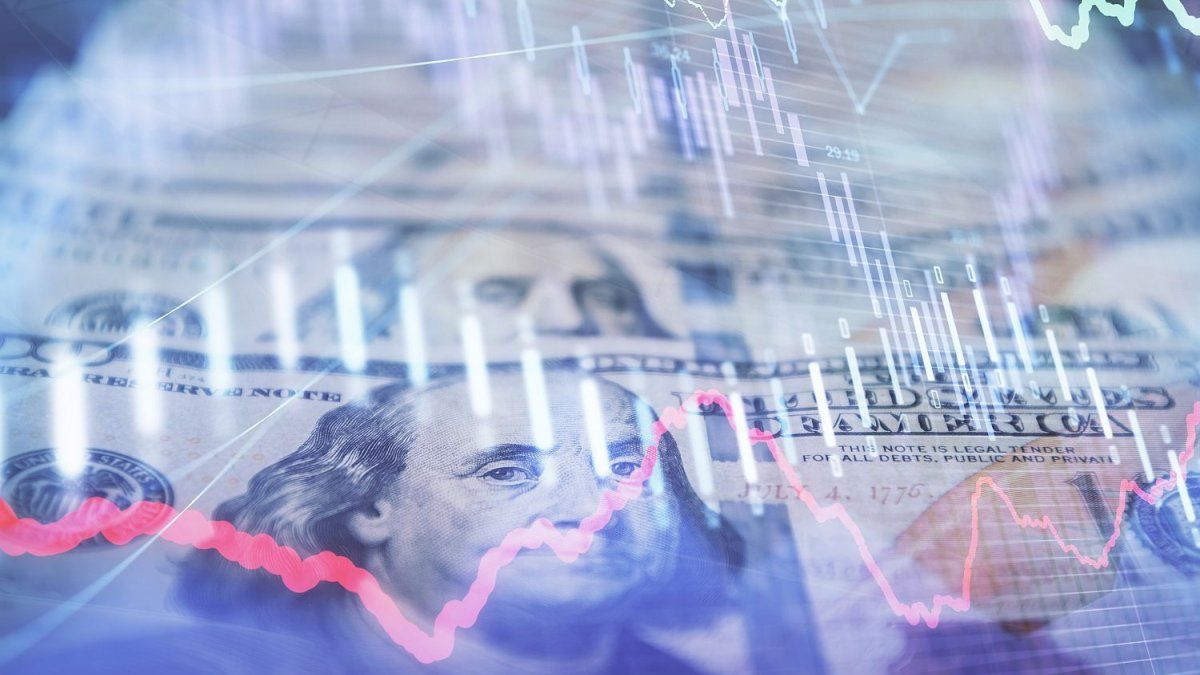Spotorno spoke with the program Dato Sobre dato, on radio Milenium, and provided the following definitions:
“You have three effects that are hitting at the same time on the decline of the blue dollar. On the one hand, it is true that with the current recession, there are many SMEs and entrepreneurs who are liquidating dollars or savings they had. Something also happens with imports that many companies stocked up on products last year. This has meant that demand for imports is reducing this year, and even more so with the recession. “The amount of pesos is not growing with inflation, so there is a lack of pesos to pay for everything that has increased.”
“It is clear that the government’s number one objective is to lower inflation, so the exchange rate delay is not a priority. In general, in low inflation processes, it should not be surprising that the exchange rate delay accelerates. “It is more difficult for you to have a low inflation process without exchange rate delay.”
“We have to see what happens with the release of the stocks. It could also help the exchange rate turn around.”
“For many years, agriculture has already settled what it needs because there is no financial market in Argentina that guarantees the agricultural producer who settles and then keeps the money. Savings for agriculture are the grain. What is needed is settled, if it is not needed it is not settled. This year is no different than any other year. I think that since the 90s in Argentina it has been settled like this. I don’t think the dollar or the exchange market really changes how much is settled in Argentina. “Every year the same thing happened.”
“As the economy rebounds, you will have demand for imports as stocks are depleted. “To the extent that the government begins to get out of the trap, there may also be a demand for dollars.”
“I believe that as inflation goes down and stabilizes, you will begin to have some rebound in the economy. Agriculture is going to help a little. Possibly in terms of economic activity, I imagine it will be March. I’m not saying that it’s going to be good afterwards, it’s not going to be the worst, it’s not the same. With the harvest, some economies are reactivated, it is not that much but it is something. Today you have nothing. It is true that to the extent that the stocks in the economy are consumed, you may have some rebound. Think that there are many plants that are standing. There are sectors that will rebound faster than others. Agriculture is going to be one of those that will rebound the most, as well as mining, oil and energy. Consumption is probably among the latter. We are going to see the economic rebound more in the second part of the year and very gradual. “There is no greater economic rebound effect than lowering inflation.”
“Businessmen never lower prices, they give promotions. The more promotions you see, it is because it is the way to lower the price. Putting a price on economics is a process of trial and error. There is no way to know in advance what the price is.”
“Obviously it always helps to open imports to control prices. The typical stabilization plan is to make a monetary squeeze, a fiscal squeeze and open imports in such a way as to control prices. That helps many consumer products. It is also true that when you measure consumer prices, you are measuring the price of the product on the shelf. The oil you consume in the gondola has nothing to do with bulk oil. It depends more on transportation, packaging, and distribution than on what is inside. “When you buy milk in the supermarket, you are buying more gasoline than milk, someone once told me.”
Source: Ambito
I am a 24-year-old writer and journalist who has been working in the news industry for the past two years. I write primarily about market news, so if you’re looking for insights into what’s going on in the stock market or economic indicators, you’ve come to the right place. I also dabble in writing articles on lifestyle trends and pop culture news.




